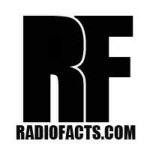
Last Friday night, hundreds of 20-somethings packed the unassuming Greek American Political Club in Central Square for Thunderdome, a recurring underground dance party with the rickety, I-can’t-believe-we’re-getting-away-with-this feel of a VFW-hall punk show. A piece of fluorescent pink poster board hung crookedly outside the door, “Members only” scrawled on it in magic marker. Inside, the barren walls and old wooden floor were reminiscent of a homey wedding
reception, although this crowd was more American Apparel than rented tux.
At one end of the room, a sle board, a mixer, and turntables were spread out over a pool table – a pretty stand ard DJ setup. But the three Boston DJs providing the music that night were anything but traditional. One of them, DJ Die Young, was spinning and flipping switches, but his eyes were focused most intently on one thing: his laptop screen.
Thunderdome, like other local DJ nights, is run by a new breed of music enthusiasts who’ve grown up with MP3s and hard drives instead of dusty vinyl records in milk crates. This cadre of Boston DJs – like DJ Die Young, a.k.a. Jamie Michalski, a 25-year-old Boston University electrical engineering graduate, and Michael Potvin, a bike- and electronics fix-it man and Apple Store employee – is riding the wave of DIY laptop beats, popularized by big names such as Girl Talk, into a new era. And oddly enough, the more high tech these DJs get, the more like rock band s they are becoming.
In fact, many local DJs are musicians themselves and are starting to follow in band s’ footsteps – putting up fliers for shows on street corners, playing in small venues, opening for touring acts at rock clubs such as Great Scott and the Middle East, even obsessing over MySpace friends and Facebook event RSVPs. It’s not just stand ing in front of college dorms passing out glossy hand bills advertising expensive nights with international stars anymore.
And the technological advances are leveling the playing field, making DJing almost as commonplace as playing a guitar. “Anybody can DJ a party now,” says Potvin, a.k.a. MicL PTVN, one of the Thunderdome founders who played in Cambridge last Friday. “I could just walk in with my phone and plug it in to start the party.”
In the past, being a DJ meant spending hours and paychecks looking for rare records, carrying boxes of them to clubs, and mastering transitions and matching beats from song to song on the fly, memorizing the grooves where every essential moment lived on hundreds of records. Now everything you need to put on a show can fit inside a backpack and be put together digitally long before an event begins.
And the people on the dance floor don’t seem to mind a bit. “I don’t care what they’re doing to the music before it comes out of the speakers,” says Ryan Dwyer, 26, of Cambridge, stand ing near the dance floor at Thunderdome. “It’s about feeling and soul.”

